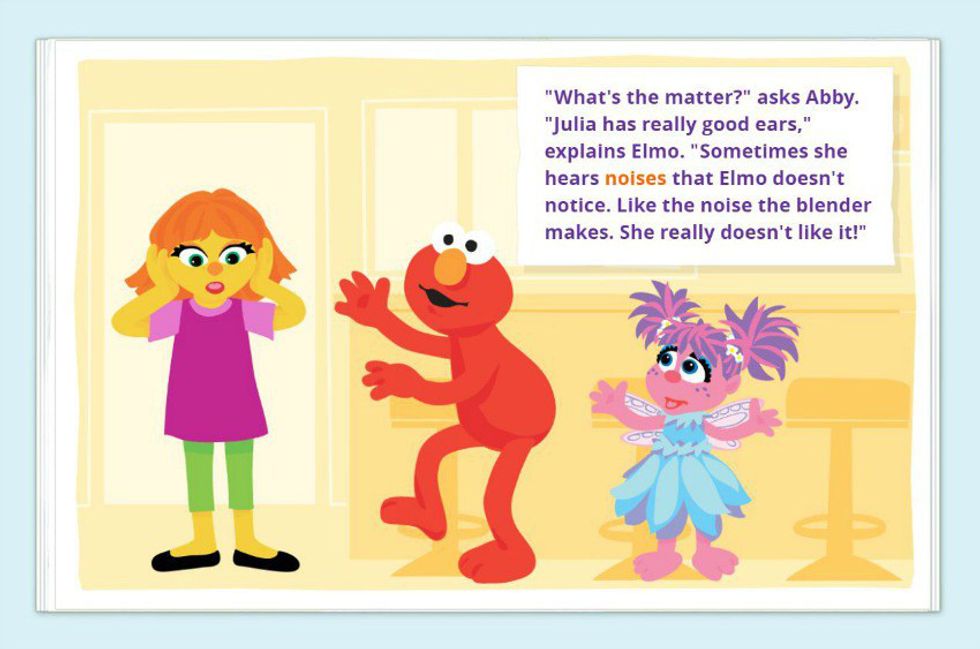Growing up, I often found myself watching "Sesame Street" every morning. "Sesame Street" is a children’s show that is aired on PBS and is one of the staples of the channel. The show first aired in 1969 as an educational program for young children. Since it came on the air, there have been 45 seasons and around 4,526 episodes, and it is still going strong.
"Sesame Street" has recently added a new character to the show, and she isn’t just another normal character but the first autistic character on the show. Her name is Julia, a little muppet girl with a wide smile. "Sesame Street" has previously talked about autism before in the show through a muppet named Abby who said, “Lots of kids have autism and that just means their brains work a little differently." "Sesame Street" felt they should do more to get rid of the stigma that is associated with autism, so they paired up with Autism Speaks and Autism Self Advocacy. Julia is going to have her own digital storybook called “We’re Amazing 1,2,3.”
Michael Robb, a director of research for Common Sense Media, stated that the creation of Julia is “pretty groundbreaking,” and that giving children a visual and showing Julia’s digital storybook can help children to better understand children with autism and how they are different. Julia has not been on air yet, but once "Sesame Street" gets the approval from the Autism community, you can find her on PBS.
In the past 10 years we have come a long way to help the autistic community and raise awareness. Many shows, movies, and literature have started to include autistic characters, but Julia will be the first reoccurring autistic cartoon character.
Autism prevalence is on the rise, and that means we need to do more to educate people about it and accept the autistic community. Autistic people should not be looked down on or treated as if they are different than everyone else: they should be included in society because even though they are unique they all have many talents and gifts. I learned this when I volunteered at a camp called Stepping Stones in Cincinnati, Ohio, which is a camp for children with disabilities. Before my experience there I never really had actually met and hung out with people with autism and it truly opened my eyes. They were just like any other kids you would see at camp and loved to play games, do crafts, make music, and tell stories. Even with the ones who struggled to speak and didn’t use many words, it was easy to understand what they wanted without the need to say anything at all. Growing close to the campers gave me a better appreciation for the autistic community, and a better understanding of who they are. They are not much different than you and I, and they shouldn’t be treated badly. To raise awareness and help end the stigma associated with autism educate yourself and visit the Autism Speaks website.





















